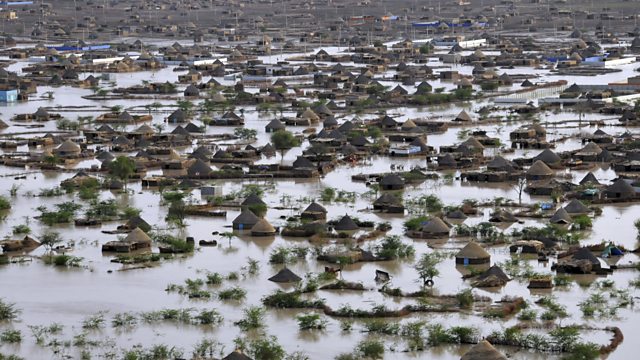Indian Ocean Extreme Weather
Flooding and droughts will be more common for countries near the Indian Ocean. A possible universal snakebite drug, invasive species and why an octopus doesn’t get all tied up.
Devastating droughts and crippling floods could become many, many, times more frequent in areas as far spread as India, Australia, the east of Africa, and Indonesia. These all border the Indian Ocean, and extreme climate and weather events are predicted to become more common as greenhouse gas emissions continue to increase. This warning comes from scientists in India, China and Japan, who modelled the effects of CO2 on a climate cycle known as the Indian Ocean dipole. Dr Andrew Turner, a lecturer in monsoon systems at the University of Reading in the UK, explains more.
Snake Bite Treatment
Scientists think they are a significant step closer to the development of a universal treatment for snakebites that is quick and easy to administer. Almost five million people are bitten by snakes each year. The usual treatment is an antivenom, but that has to be given in a hospital via injection, and is often very expensive. There is also an antiparalytic drug, neostigmine, but that has to be injected too. But with the vast majority of snakebites occurring in impoverished, rural populations with limited access to medical treatment, something better is needed. Dr Matthew Lewin is director of the Center for Exploration and Travel Health at the California Academy of Sciences, he led the team behind the work and also tested the drug on himself!
Invasive Species
The spread of invasive species is a problem that has a great impact on natural ecosystems across the world. The effects are particularly evident on islands, which often contain unique or vulnerable species and environments. Recently in the UK, some reports of an intimidating sounding invasive animal spread across newspapers and the internet. Science In Action’s resident zoologist, Dr Tim Cockerill, investigates.
Octopus Unravelled
These graceful creatures are able to swim, explore, and manipulate objects with their eight tentacles, and yet somehow, even though they are covered in suckers, they never seem to get tangled up or stuck to themselves. They cannot be intuitively aware of the position of their limbs in the same way that most animals are, because they do not have a skeletal structure for reference. Dr Guy Levy, part of the Octopus Group research team at the Hebrew University of Jerusalem, now has the answer.
Photo: Positive Indian Ocean Dipole events cause devastating floods in many vulnerable east Africa countries. The 1997 positive Indian Ocean Dipole event resulted in several thousand deaths and displaced hundreds of thousands of people. The latest generation of climate models project that these extreme events are to occur more often under greenhouse warming. This image depicts the Gash River flooding in Kassala, Eastern Sudan, 2007.
Credit: ©
MOHAMED NURELDIN ABDALLAH/REUTERS
Presenter: Jack Stewart
Producer: Ania Lichtarowicz
Last on
More episodes
Previous
Next
Chapters
-
Indian Ocean extreme weather
Scientists predict flooding and droughts will become more common.
Duration: 10:17
Snake bite treatment
A universal drug to treat deadly snakebites is a step closer
Duration: 07:55
Invasive species
The threat of invasive species to ecosystems in the UK
Duration: 06:07
Octopus unravelled
Why do octopus never get tangled up?
Duration: 05:15
Broadcasts
- Thu 12 Jun 2014 18:32GMTÃÛÑ¿´«Ã½ World Service Online
- Fri 13 Jun 2014 01:32GMTÃÛÑ¿´«Ã½ World Service Online
- Fri 13 Jun 2014 08:32GMTÃÛÑ¿´«Ã½ World Service Online
- Mon 16 Jun 2014 03:32GMTÃÛÑ¿´«Ã½ World Service Online
Podcast
-
![]()
Science In Action
The ÃÛÑ¿´«Ã½ brings you all the week's science news.


